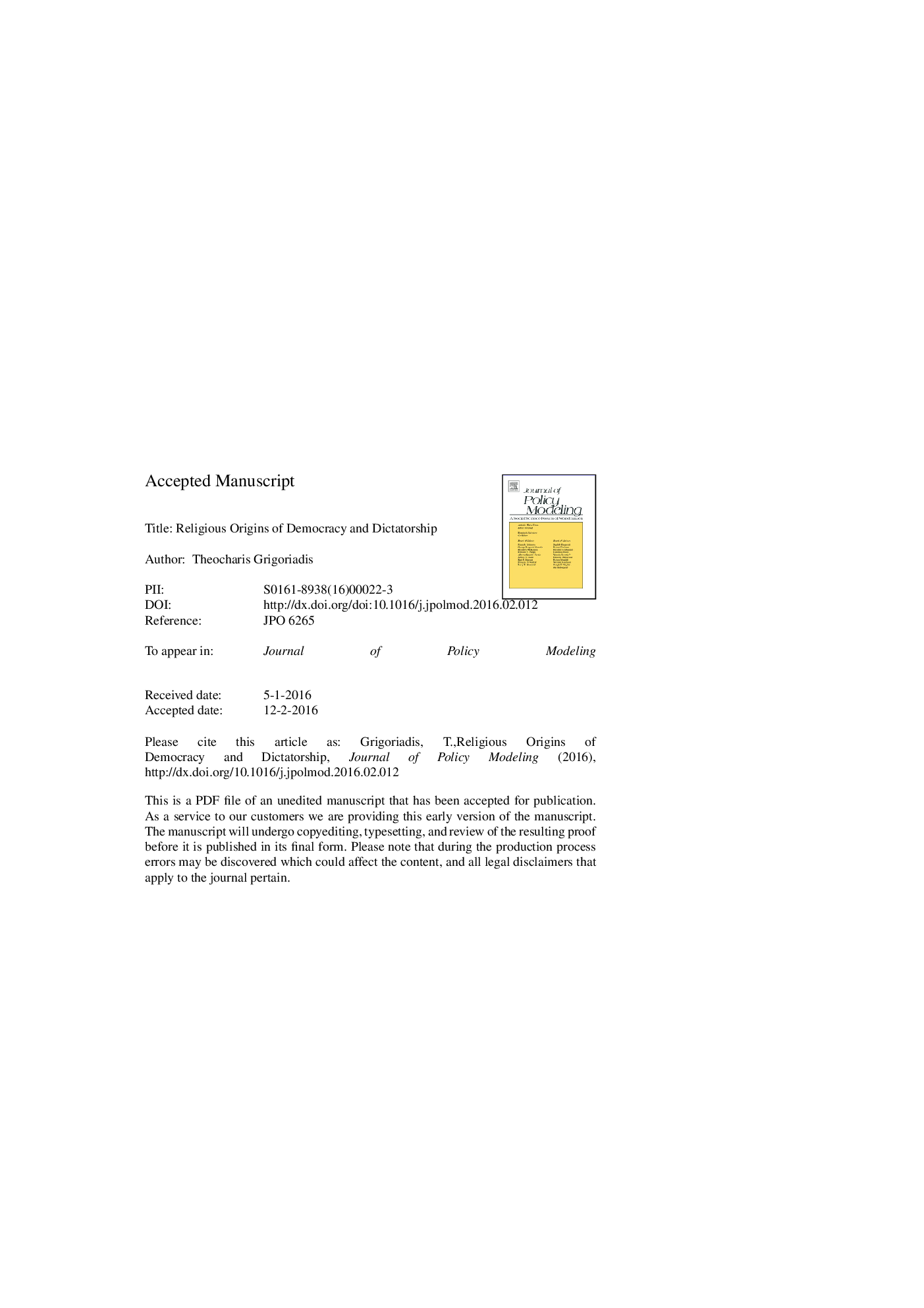| Article ID | Journal | Published Year | Pages | File Type |
|---|---|---|---|---|
| 5101706 | Journal of Policy Modeling | 2016 | 45 Pages |
Abstract
Weber considered the Protestant work ethic the foundation of modern capitalism. I extend Weber's theory by arguing that states with predominantly Roman Catholic, Eastern Orthodox, and Muslim populations have had a stronger inclination toward underdevelopment and dictatorship than states with Protestant or Jewish majorities. This is the case because their respective religious collectives (monastery, tariqa) promote the hierarchical provision of common goods at the expense of market incentives. I define the aforementioned three religions as collectivist, in contrast to Protestantism and Judaism, which I define as individualist. I provide a historical overview that designates the Jewish kibbutz as the collective of democracy and the Eastern Orthodox monastery as the collective of dictatorship. Focusing on collectivist economies, I find that modernization, as a credible commitment to the improved future provision of public goods, occurs when the threat of a radical government is imminent and when the leader has high extraction of rents from the economy. The emergence of radical governments is more likely in collectivist than in individualist economies. Historical illustrations from collectivist economies include the Russian Revolution, the Islamic Revolution in Iran, and the postwar welfare state in Western Europe.
Related Topics
Social Sciences and Humanities
Economics, Econometrics and Finance
Economics and Econometrics
Authors
Theocharis Grigoriadis,
